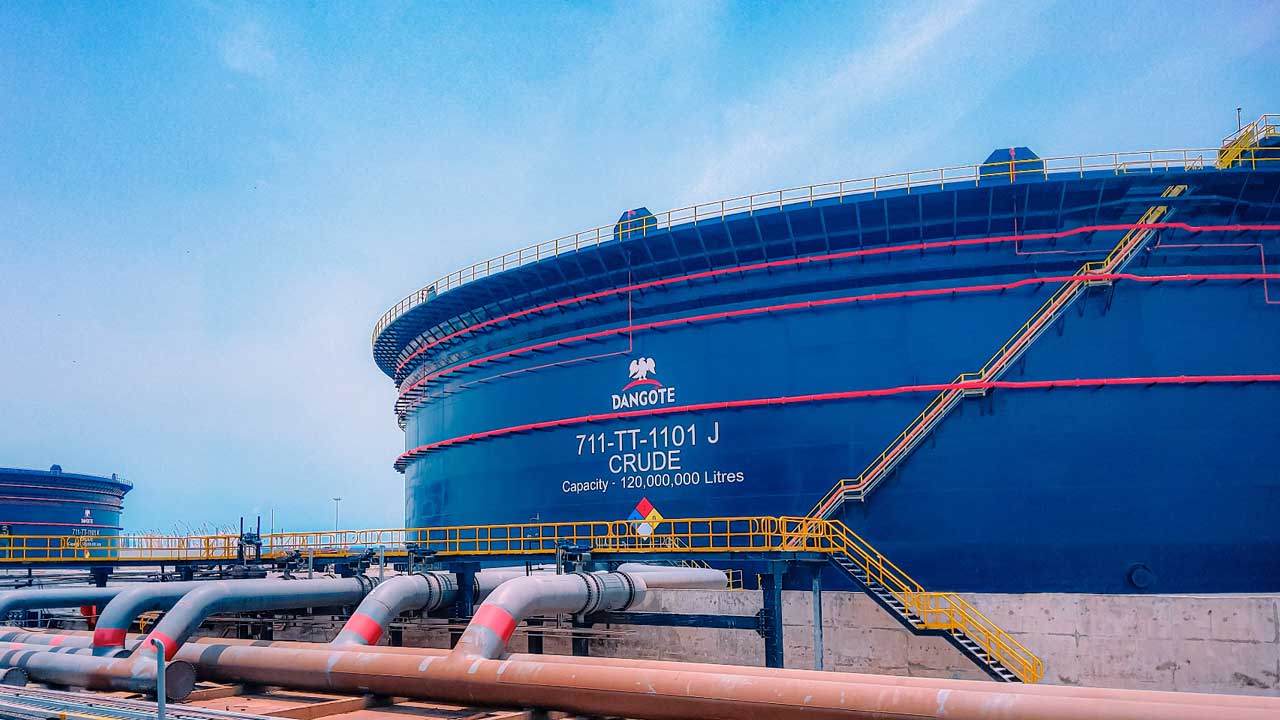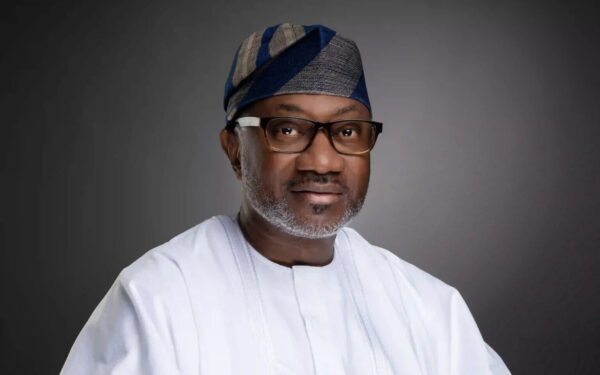As the 2027 general elections get closer, this article by Festus Okoye examines the role of political parties with regard to the process of conducting primaries, from the screening of aspirants to the conduct of primaries, submission of lists of candidates to the Independent National Electoral Commission (INEC), and the role of the courts in pre-election matters that may arise therefrom, stressing that the role of the courts is limited
Introduction
Soon, the Independent National Electoral Commission (INEC) will, in accordance with constitutional and legal mandates, announce the dates for the 2027 general elections, and release the timetable and schedule of activities for the conduct of party primaries. By Section 28 of the Electoral Act, the Commission shall, not later than 360 days before the day appointed for holding of an election under the Act, publish a notice in each State of the Federation and the Federal Capital Territory stating the date of the election; and appointing the place at which nomination papers are to be delivered, and the notice shall be published in each constituency in respect of which an election is to be held.
Even before this announcement, the country is experiencing heightened political activity, exemplified by large billboards across the States of the Federation, promoting the virtues of various aspirants. The nation has seen the emergence of coalitions and subsequent coalitions. It has also witnessed mass defections from one party to another, unprecedented in Nigerian political history. Alignment and realignment of parties, have become common. Party leaders in some States have been dethroned, due to defections and repositioning. All these developments will influence the conduct of party primaries, across all political parties and formations.
It would be presumptuous to assume that existing political parties, as well as those that have applied for registration and those that will eventually be registered, will conduct seamless primaries strictly under the Constitution of the Federal Republic of Nigeria, the Electoral Act, INEC Regulations and Guidelines, INEC Timetables for primaries, party constitutions, and their guidelines. It is essential to analyse the constitutional, legal and administrative issues surrounding the conduct of party primaries, and to explore ways in which political parties can be encouraged to hold credible primaries.
Understanding the role of various organs within the party in conducting primaries, is equally important. Courts have, on several occasions, intervened to a limited extent in resolving issues related to party primaries. Reviewing what actions courts have previously taken, and what they should do to uphold party supremacy and prevent arbitrariness by party leaders is crucial.
The Screening of Aspirants
Political parties have the primary responsibility of determining who should be their candidate, in the various elections provided for under the Constitution and the Electoral Act. The screening process is provided, in their constitutions and party primary guidelines. It is their responsibility to clear aspirants with the right qualifications. The party may decide to adopt a zoning policy, for the various offices provided in the Constitution and the law. It may zone its presidential seat to a State, or geopolitical zone with a vote bank. It may zero in on a candidate who is charismatic, and can galvanise votes. Some aspirants may not like the screening process and may disagree with the party on the viability of a candidate and the politics of electability. At this point, aggrieved individuals cannot rush to the Courts to seek redress; the internal mechanisms of the party for dispute resolution must be exhausted. The party is required to act with fairness and professionalism.
Despite the voluntary nature of political parties, individuals who have made valuable contributions to the party cannot easily walk away and find a new home. There is a possibility that they will accept the verdict of the party based on fairness and equity in the decision. But when opaque decisions are taken and the basis is shrouded in secrecy, it contributes to the nomadic behaviour of the political elite, rendering political parties as simply vehicles for political power and no more.
Preparation for Party Primaries
Constitutionally, no political party can get on the ballot without conducting primaries to determine the candidate that the party should sponsor. That is the intendment of Section 65(2)(b) of the Constitution, and other corresponding provisions relating to other elective offices. They collectively provide that before a candidate can get on the ballot, the candidate must be a member of a political party and be sponsored by that party.
Ordinarily, the identification, screening of aspirants, and compilation of the names of those who will contest primary elections, as well as the conduct of primaries, ought to be the exclusive responsibility of political parties. That is the gravamen of political party formation and administration. Parties cannot continue to be spoon-fed and yet, pretend to be independent entities.
As the country proceeds to the 2027 general elections, the political parties must organise themselves and bid for political power. It is a well-known fact that sometimes conflict arises between the national and State branches of political parties, regarding who has the authority to conduct primaries for Governorship, National, and State Assembly elections. Occasionally, senior party members at the national level may disagree with grassroots members, over who can screen aspirants and oversee primaries. For some, in the power struggle, political parties are linked to financiers or party owners, and must bow to their influence. Sometimes, senior figures prefer to appoint aspirants rather than hold a transparent and accountable primary. Occasionally, the party informs the electoral management body of the venue for primaries and then unilaterally changes it, leaving party members stranded and confused.
Due to the challenges faced by nearly all political parties in conducting primaries, the National Assembly amended the Constitution to grant itself the power to make additional provisions regulating party primaries. Under Section 228 of the Constitution, the National Assembly may, by law, issue – (a) guidelines and rules to promote internal democracy within political parties, including laws for conducting party primaries, congresses, and conventions; and (b) confer powers on the Independent National Electoral Commission deemed necessary or desirable to enable the Commission to ensure that political parties uphold practices of internal democracy, including the fair and transparent conduct of primaries, congresses, and conventions; (c) provide an annual grant to the Commission for disbursement to political parties on a fair and equitable basis to support their functions; and (d) grant the Commission other powers it considers necessary or desirable to ensure political parties adhere to the provisions outlined in Section 228 of the Constitution.
The Conduct of Party Primaries
Given our unique political circumstances, political parties cannot hold or proceed with party primaries without notifying the Independent National Electoral Commission. According to Section 82(1) of the Act, every registered political party must give the Commission at least 21 days’ notice of any convention, congress, conference, or meeting organised for a “merger” and for electing members of its executive committees, other governing bodies, or for nominating candidates for any elective offices. Nevertheless, the Commission may, with or without prior notice to the political party, attend and observe any convention, congress, conference, or meeting convened by a political party to nominate candidates for an election at any level.
By Section 84(1) of the Act, a political party wishing to nominate candidates for elections must hold primaries for aspirants to all elective positions. The process for nominating candidates by political parties for various elective positions shall be through direct primaries, indirect primaries, or consensus. In the case of direct primaries, all registered members of the party shall vote for aspirants of their choice at a designated centre in each ward of the Federation, thereafter a special conventions or congresses shall be held to ratify the candidate with the highest number of votes at designated centres at the National, State, Senatorial, Federal, and State Constituencies.
For indirect primaries, the political party shall conduct its convention as outlined in the Act, and the aspirant with the highest number of votes cast at the end of voting shall be declared the winner, with the aspirant’s name forwarded to the Commission as the party’s candidate.
A political party that adopts a consensus candidate shall obtain the written consent of all cleared aspirants for the position, indicating their voluntary withdrawal from the race and their endorsement of the consensus candidate. A political party that is unable to secure the written consent of all cleared aspirants for a consensus candidate, shall revert to choosing between direct or indirect primaries for nominating candidates. A special convention or nomination congress shall be organised to ratify the choice of consensus candidates at designated centres at the National, State, Senatorial, Federal, and State Constituencies, as applicable.
The Submission of the List of Candidates
A political party is not under any compulsion to organise primaries, and submit a list of candidates to the electoral management body. It is a discretionary venture. A political party may decide to participate in a cluster of elections and abandon others. This discretion is circumscribed by Section 225(a) of the Constitution dealing with the de-registration of parties that fail to meet the threshold for existence. Political parties cannot manufacture any list and submit it to the Commission. Political parties must also conduct primaries before submitting a list of candidates to the Commission. The primaries must also be organised by the constitutionally and legally recognised organ of the party. And, by Section 29(1) of the Act, the list of candidates the party proposes to sponsor at the elections must have emerged from valid primaries conducted by the political party.
Party Primaries and Pre-Election Matters
Ordinarily, the Courts should have no involvement in the conduct of primaries by political parties. Members of the Judiciary do not belong to political parties, and political parties are meant to be groups of individuals who share a common ideology or set of principles, coalesced together under a common platform to seek political power. How they organise their primaries should be regarded as their internal affair, based on their strategies, structures, and tactics for winning elections. If they organise effectively and present good candidates, the Nigerian people may choose to vote for them.
In our context, possessing a good certificate does not necessarily guarantee a place on the ballot. A political party might target specific voters, and support aspirants from that area for particular positions. They may back the aspirant preferred by the ‘owners’, or ‘big money bags’ within the party. Alternatively, they might support a grassroots candidate who can secure a win, or one capable of unleashing maximum violence on the electoral process and winning by any means necessary. Regardless of the strategy adopted, the party must conduct primaries—be they direct, indirect, or by consensus. These primaries should be carried out by the responsible party organ, and the names of the validly nominated aspirants must be submitted as the party’s candidates.
The Courts and Party Primaries
Where do Courts fit in, when issues arise around the conduct of party primaries? Section 285(14) of the Constitution categorises the conduct of primaries and the submission of names of validly nominated candidates as a pre-election matter. “Pre-election matter” refers to any suit by— (a) an aspirant who claims that any provision of the Electoral Act or any Act of the National Assembly regulating the conduct of primaries of political parties, as well as the party’s guidelines for primaries, has not been adhered to by a political party concerning the selection or nomination of candidates for an election; (b) an aspirant contesting the actions, decisions, or activities of the Independent National Electoral Commission (INEC) concerning their participation in an election, or alleging non-compliance with the provisions of the Electoral Act or any other relevant law by INEC in the nomination or candidate selection process; and (c) a political party challenging the actions, decisions, or activities of INEC disqualifying its candidate, or alleging non-compliance with electoral laws with candidate nominations, election timetable, voter registration, or other electoral activities leading up to an election.
The Courts have consistently clarified that political parties are voluntary associations of individuals who share the same fundamental ideology, or who pretend to share it, and have agreed to come together to pursue the goal of political power. As voluntary organisations, the Courts are neither empowered, nor have the authority (vires) to impose leaders on them or decide who their candidates in an election will be. It is the responsibility of the parties and their leaders to develop their winning strategies, and promote their vision of society to the voters.
Unfortunately, some political parties in Nigeria defy a clear definition; they do not behave like traditional political parties, and cannot be classified as such. Their only claim to being parties, is that they satisfied the constitutional and electoral thresholds for registration and candidate sponsorship.
Despite their shortcomings, the Courts have a limited role in the conduct of party primaries, and in determining who the party’s candidate should be. However, political parties must notify the electoral management body in advance of their primaries, and these primaries should be conducted by the recognised party organ responsible for that task. The primaries must take place within the constituencies and must be completed within the legal and electoral timeframe. Only party members as defined in the party’s constitution and the Electoral Act are eligible to contest and participate in the primaries, and the party is obliged to submit the name of the primary winner as the official candidate for election. It is the responsibility of the party to resolve internal disputes arising from the screening process and the conduct of primaries. The Courts can only step in in limited circumstances.
As illustrated in the case of Ambassador M. J. Abubakar Waziri v Peoples Democratic Party & Anor (2023) 7 NWLR (Pt. 1882) 57 at 97 and 105, the fundamental legal principle is that resolving internal disputes within a political party is solely a domestic matter; courts have no jurisdiction to intervene. The Supreme Court has emphasised that membership of a political party is voluntary and cannot be forced. It has also maintained that courts have no authority to decide who a party’s candidate should be, as long as the candidate is chosen through the proper process.
In P.D.P v Sylva [2012] 13 NWLR [Pt. 1316] 85, the Supreme Court reaffirmed that the sponsorship and nomination of candidates remain internal to the party. It held that the right to nominate or sponsor a candidate is a domestic and political matter, within the sole discretion of the party. A party member has no legal right to be nominated or sponsored by the party. Therefore, courts lack the jurisdiction to determine who a party should sponsor. However, Courts have the power to review whether the primary was conducted according to the party’s constitution and guidelines on a proper application by a candidate who participated and is dissatisfied with the proceedings. This is because courts will not tolerate arbitrary actions by political parties.
Conclusion
Political parties preparing for primaries and scheduling their elections must be properly guided to follow the party’s constitution, the guidelines for the conduct of primaries, and the stipulations of the Constitution and the Electoral Act. Acting arbitrarily and imposing candidates who did not go through valid primaries, can only lead to ‘wasted votes’.
Those who aspire to various offices, must accept that the party is supreme. The party decides who can win elections, during the screening process. Those who are uncomfortable with how a party is run, must recognise that it is a voluntary association and no one is compelled to belong to such a party. Any individual seeking a party operated on ideological grounds, with clear mechanisms of internal democracy, must find such a party and assist in building its structures. Those who benefit from the arbitrariness of godfathers in manipulating the screening and nomination process must also realise that godfathering is not an ideology, and the godfather may decide at any time to have another godson or goddaughter.
We must protect our courts from excessive involvement in the internal afwfairs of political parties, and members of the Bar must offer professional and ethical advice to their clients on the law and the Constitution.
Festus Okoye, Legal Practitioner, Former National Commissioner, INEC
The post Political Parties, Primaries, and the Courts appeared first on THISDAYLIVE.



